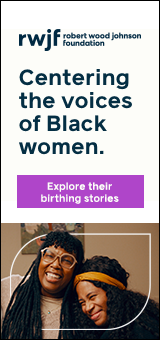In February, close to 400 visionary Black feminists from around the globe gathered in Barbados for the 2024 Black Feminisms Forum. An undertaking of the Black Feminist Fund and a multigenerational curatorial team, this dynamic two-day event served as a nexus of ideas, experiences, and aspirations, all centered around the theme of ‘Building Black Feminist Worlds.’
The Forum buzzed with energy as participants engaged in lively discussions, interactive workshops, and artistic expressions, creating a rich and diverse tapestry of perspectives and insights. At its core, the Forum aimed to not only celebrate the achievements of Black feminisms but also to build Black feminist power by providing a space for Black feminists from all walks of life to co-create, feel, and dream together.
The Forum modeled conference spaces that funders should aspire to support and philanthropy should strive to create. It was an intergenerational space that prioritized language justice (with translation in five spoken languages and sign languages), disability justice, and collective care. The Forum also included dedicated space for Black feminist elders who expressed immense joy at being invited, acknowledging that most conference spaces in philanthropy typically exclude elders.
In addition, the absence of childcare and child support hinders the attendance of many activists in meetings and conference spaces, so a special space for children, the children zone, was filled with activities mapped out specially for the kids in attendance. Further, a young feminist space, kaleidoscope zone, promoted connection, networking, collaboration, and solidarity among young Black feminists.
As we witness the rollback of rights globally, having an intergenerational space for solidarity promotes a sense of continuity, encouraging us to acknowledge tools and tactics brought to the struggle and how to apply them to current global and regional contexts.
Safe Spaces
When Staceyann Chin, Jamaican spoken-word poet and political activist, took the stage at the opening of the convening, the very first words she uttered into the microphone were ‘Is this a safe space?’ and the cheering from the audience served as a resounding, unmistakable ‘yes!’
The literal definition of a safe space is a space that is intended to be free of bias, criticism, or potentially threatening actions or conversations. However, as we all gathered on the beautiful and symbolic island of Barbados, safety felt like more than just a physical space; it was a collective embrace of our identities, stories, and struggles. Safety meant being seen, heard, and valued. It felt like embracing the ‘messiness’ of our shared reality and admitting when we didn’t have all the answers.
When we support spaces where Black women and gender diverse people are allowed to laugh, cry, swear, dance, and grieve among ourselves, we allow space for transformative healing and collaboration. These spaces nurture our collective journey toward belonging, liberation, and justice.
From Whence We Came
Central to the discussions was an understanding of Black feminist history as a living legacy that informs and inspires contemporary activism. Black feminist elders from all over the world shared key lessons and strategies. From the Grenada Revolution to Apartheid in South Africa, we learned about the roles of Black feminists in the pursuit of freedom and equality – directly from the people who were part of the movements.
Without understanding the historical landscape of where the Black feminist movements have been, it is almost impossible to craft a pathway forward. Knowledge-sharing creates a bridge between the past and the future and encourages us to view contemporary activism as a continuation of the struggles of our Black feminist elders. The continuous work needed for liberation from centuries-old oppressive structures will span many lifetimes, and it’s important to remember that our contributions are valuable even if we aren’t around to see the fruits of our labour.
Aside from the pedagogical ‘passing down’ of wisdom and insights, Black feminist elders participated in the co-creation of a shared vision for the future, where the voices of all generations of Black feminists are heard and valued.
Addressing Contemporary Issues
As anti-rights movements continue to gain traction all over the globe, young Black feminists are up against different challenges than their elders. Social media, digital surveillance, biometric systems, algorithmic biases, and the use of technology to perpetuate violence in crisis are just some of the challenges that arise from a time where activism is highly reliant on digital platforms to share information, combat hateful narratives, and build global Black feminist networks.
Despite these challenges, Black feminists are using mainstream technological platforms to enact change while strategizing and creating alternative technologies that are non-racist, non-patriarchal, and useful for Black feminist movements across the globe. A beautiful example of this is the Breonna’s Garden application, in honor of Breonna Taylor, which has now grown into a safe platform of healing and solidarity for anyone who has experienced similar loss.
Investing in Dreams of Brighter Days
By investing in these spaces, we as funders not only honour the legacies of past generations but also cultivate fertile ground for nurturing the leadership, creativity, and collective power of future generations of Black feminists. Funding Black feminist power means funding Black feminist ingenuity.
These shared spaces make collaboration possible, and there is no limit to what Black feminists can accomplish when given the opportunity to be in community with each other. This type of collaboration ensures that Black feminist movements are thriving and sustained for the long haul. The journey towards liberation is arduous, and long-standing injustice cannot be solved without collective action. Black feminists can build a world where equality, liberation, and community are not just ideals but lived realities for all. It’s time for funders to recognize and invest in this potential.
Acknowledgements:
We would like to acknowledge the Black Feminist Fund staff and team, and the 2024 Black Feminisms Forum curatorial team. As funders, we need to be mindful that meaningfully organizing intergenerational spaces like the Black Feminisms Forum takes time, resources and energy, and as we work towards increasing support for convenings, we should also support the teams behind these convenings to care for themselves.
We also recognize the Black feminists who couldn’t make the Forum due to inter-country restrictions on transit visas. Despite attempts from the Black Feminist Fund, many Black feminists and activists were denied transit visas for connecting flights to Barbados. It is something funders should take into account when resourcing convenings.
Jewel Antoine is a Trinidadian-American feminist, writer, and the Communications Associate at Foundation for a Just Society.
Rophiat Bello is a women’s rights and feminist advocate, and the Global Program Associate at the Foundation for a Just Society.







Comments (0)
Well-articulated by both of! This writing is inspirational and so needed. Jewel Antoine is a Trinidadian-American feminist, writer, and the Communications Associate at Foundation for a Just Society. Rophiat Bello is a women’s rights and feminist advocate, and the Global Program Associate at the Foundation for a Just Society.